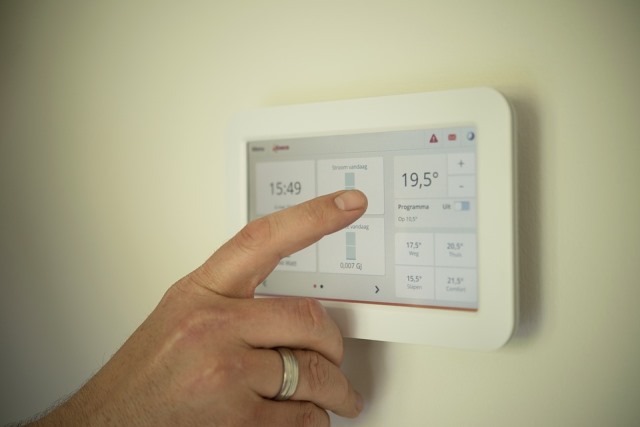Electricity is one of the major costs in home maintenance. You need energy to power most of the systems in your home from the lighting, heating, ventilation and air conditioning, appliances and other applications. For most homes, the main source of electricity is from the grid and at times, this is not reliable.
The cost of electricity from the grid also fluctuates erratically depending on the cost of fossil fuels used in the power generation plants. This necessitates an alternative source of energy and solar energy has emerged as the most reliable option. In Asian countries, solar energy capacity increased to about 330.79 thousand megawatts in 2020 up from 5.5 megawatts in 2010.
Solar energy offers multiple benefits to homeowners including lower cost of energy, reduced reliance on the national grid, and reduced carbon footprint to help in environmental conversation. Solar energy systems also increase your home’s value and this is a long-term investment which eventually pays for itself.
However, solar energy storage remains a major hindrance in the adoption of this natural source of power. This post looks at the challenge of solar energy storage and some solutions for solar energy storage to help you leverage the whole range of solar energy benefits.
The Challenge of Solar Energy Intermittency
But even with this impressive adoption of solar energy in the region, one of the biggest drawbacks is weather-dependence. The efficiency of a solar energy system drops dramatically in cloudy/rainy weather. In most cases, solar peak production is not always at the peak power usage.
When most people are at work during the day, that’s when a solar energy system produces much of the energy. This means much of the clean energy produced will go to waste. Worse still, during rainy weather, the system is not efficient and you have to revert to the grid supply.
You end up paying more for energy despite having a solar energy system in place. What’s more, reliance on the national grid means the use of more fossil fuel which devastates the environment. This is where solar energy storage for your home comes in handy to overcome the solar energy intermittency problem.
Overview of Solar Energy Storage
Solar energy storage refers to technology or applications that help capture electricity from the photovoltaic panels on your home and store it in chemical, thermal, mechanical form. The energy is available on demand when needed. For instance, you can use such stored energy to power your home when there’s an outage or to go fully off-grid. It’s advisable to explore the best and safest ideas to store your energy when you plan your home’s solar energy system.
The solar energy storage systems (batteries) are like any rechargeable battery on the market. The batteries rely on the sun’s power to recharge. When the solar panels can’t produce enough energy because of poor weather, your system can draw from the power stored in the batteries.
Examples of solar energy storage systems include lead-gel, lead-acid and lithium-ion batteries. The oldest storage technology is the lead-acid batteries which unfortunately require specialized maintenance.
The Lithium-ion solar storage batteries have emerged as the alternative energy storage systems due to their more advanced technology and minimal maintenance. With Li-Ion solar energy batteries you get more life out of the system with a lifespan of 15 to 20 years. The batteries also boast high discharge depth (DoD) of 100%, enhanced safety, more cycle stability.
Different solar energy storage systems have emerged on the market. The Enovatek energy storage system is one of these systems and it revolutionizes the whole idea of solar energy in residential properties. This means you can now store energy for later use.
This innovative technology Couples solar energy generation and storage technologies into one. You not only leverage an efficient solar energy system but also enjoy the benefits of energy storage in your home.
Benefits of Solar Energy Storage System for Your Home
Solar energy installation is a capital-intensive project. While the cost of solar energy hardware and technology continue to fall due to favourable government policies, you still need a lot of money to set up the system. This brings in the question whether you need to invest more for energy storage.
To appreciate the reason for solar energy storage, consider the following benefits:
Greater energy security: You reduce reliance on the grid with enough stored energy
Maximise your solar system: Make the most out of your solar energy system with the stored energy reserves
Increase your home’s energy efficiency: You can now rely more on clean energy and reduce your home’s carbon footprint
Enjoy more cost-benefits: Your solar energy system pays for itself even faster as you don’t revert to the costly grid system
Increased home value: Home buyers look for energy-efficiency in homes on the market to cut on home maintenance costs
ROI: It’s possible to sell excess energy to the grid in some countries and also leverage solar energy incentives and rebates
Final Thoughts
Investing in a solar energy system for your home is a smart decision. However, there’s a limit to how much energy available because these systems are weather-dependent. With installation of an energy storage unit, you get more out of your solar energy installation.

